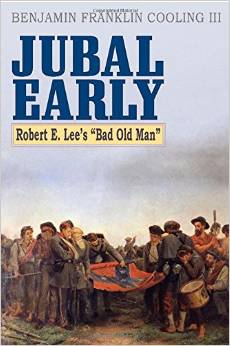In Lady Rebels of Civil War Missouri, Larry Wood takes readers into the most complex and contentious period of Missouri’s history to detail the lives of seventeen female Confederate sympathizers. Wood argues that prior to the Civil War, women were thought to exist completely outside the realms of politics and war. However, many pro-Southern women engaged in acts of what Union officials deemed subversive behavior, such as smuggling, spying, or acting as mail carriers for Confederate forces. Their activities, and the legal actions taken against them by Missouri’s Union officials, demonstrated their dynamic roles in the war, as well as their involvement within the political sphere.
Each woman discussed by Wood resided in Missouri, a state set apart from all others during the war. Border states like Kentucky and Delaware had sizable pro-Union and pro-Confederate populations, but Missouri stood apart as internal hostilities tore the state in two. The vitriolic attitudes of Union and Confederate sympathizers were expressed through the omnipresent activity of bushwhackers and guerillas throughout the war. This asymmetrical warfare pitted neighbors and families against one another. The women discussed by Wood emerged from within this conflagration.
In each succinct biography, Wood details the prewar and wartime actions of each woman. Most of the women engaged in mail carrying or sent letters to relatives or friends within the Confederacy, an act forbidden by Union authorities. Several women, such as Kate Beattie, Amanda Cranwall, and Jane Duncan, participated in more dynamic subversive activities, including spying, smuggling, or aiding groups of pro-Confederate guerrillas.
The most fascinating aspect of Wood’s work is his description of how these women were tried and punished through military channels of governance. In most minor cases, federal officials punished each woman by forcing them to take an oath in support of the Union. When this failed, women were subjected to further house arrest, or else sent to St. Louis for imprisonment and sentencing. In more severe cases, women faced banishment, either to a different Northern state to live with family or to the South. In rare cases, such as that of Emily Weaver, who was charged with spying, women were sentenced to death. In every case, the women themselves (or family members and lawyers) worked to commute or lessen their sentences. This worked for some, as Union officials (and even President Abraham Lincoln) felt pity or determined that their charges were thinly supported; however, in other cases, Union officials chose to make examples, and held punishments in place until the end of the war. Fortunately, for those few condemned to death in Missouri, Union officials commuted their sentences.
Wood’s book is stimulating on many levels, and it is a useful reminder of the many ways in which the Civil War impacted women. However, each biography follows a tediously formulaic structure that is made more apparent by the striking similarity of each woman’s experience. Although each woman had varying experiences, their brushes with Union authorities were analogous. Nevertheless, the biographies presented by Wood not only demonstrate the agency of pro-Southern women in Missouri, but further document the complex nature of Union governance within the state.
John Sarvela is a graduate student in the Department of History at Oklahoma State University.




